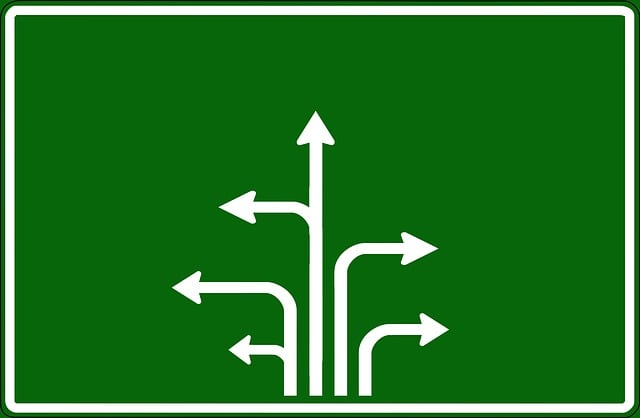Clackamas County, Oregon, excels in civil commitment through a balanced approach. State laws guide a stringent yet fair process, with advocacy groups bridging court, individuals, and support systems. This collaborative effort ensures rehabilitation and reintegration when appropriate. Local advocacy plays a vital role, protecting rights while facilitating access to treatment, setting a benchmark for Oregon-wide effective practices.
“Oregon’s civil commitment procedures, particularly within Clackamas County, offer a crucial safety net for individuals struggling with mental health issues. This article delves into the intricate legal framework governing this process, from the initial petition to the final hearing. We explore the roles of key stakeholders, including lawyers and judges, and examine the rights of those involved, focusing on due process and appeals. Additionally, we highlight advocacy strategies aimed at supporting individuals in need, with a special emphasis on Clackamas County advocacy.”
- Clackamas County: Legal Framework for Civil Commitment
- Understanding the Process: From Petition to Hearing
- Roles of Key Stakeholders: Lawyers & Judges
- Rights of Individuals: Due Process & Appeals
- Advocacy Strategies: Supporting Those in Need
Clackamas County: Legal Framework for Civil Commitment

In Clackamas County, Oregon’s civil commitment process is governed by a robust legal framework designed to balance public safety with individual rights. The county’s procedures adhere strictly to state laws and regulations, ensuring fairness and due process for all involved. Advocacy plays a pivotal role in this system, as it facilitates communication between the court, committed individuals, and their support networks, fostering an environment where recovery is prioritized.
Through advocacy efforts, community members and legal professionals work together to ensure that civil commitment is used judiciously. This collaborative approach emphasizes rehabilitation over restriction, aiming to reintegrate committed individuals back into society once they meet the necessary criteria for release. Clackamas County’s commitment to this balanced and compassionate approach sets a standard for civil commitment practices across Oregon.
Understanding the Process: From Petition to Hearing

In Oregon, civil commitment is a legal process aimed at providing treatment for individuals with severe mental illnesses who pose a danger to themselves or others. Understanding the process from petition to hearing is crucial for those seeking advocacy in Clackamas County. It begins with a petition filed by a qualified professional, such as a physician or licensed clinician, alleging that the individual meets the state’s criteria for involuntary commitment. This petition is then reviewed by a judge who determines if there’s probable cause to believe the person suffers from a mental disorder and presents a danger to themselves or others.
If probable cause is established, the court schedules a hearing where both the petitioner and the individual being committed have the opportunity to present evidence and arguments. During this hearing, Clackamas County advocacy groups can play a vital role in ensuring the rights of the individual are protected while also emphasizing the importance of accessing appropriate treatment. The judge ultimately decides whether to commit the person, taking into account all presented information.
Roles of Key Stakeholders: Lawyers & Judges

In Oregon’s civil commitment process, lawyers and judges play pivotal roles in ensuring due process and fairness. Lawyers are instrumental in representing individuals facing civil commitment, advocating for their rights and offering legal counsel tailored to their unique circumstances. They guide clients through each stage of the procedure, explaining complex legal concepts and helping them navigate the system effectively.
Judges, on the other hand, are responsible for making critical decisions regarding civil commitments. They review evidence, hear arguments from both parties, and ultimately determine whether an individual meets the criteria for commitment. The judge’s decision is guided by strict legal standards and a commitment to protecting the rights of all involved while ensuring public safety. Clackamas County advocacy plays a significant role in this process, with local legal experts providing specialized support tailored to the region’s needs.
Rights of Individuals: Due Process & Appeals

In Oregon, including Clackamas County, individuals facing civil commitment proceedings have specific rights protected by due process laws. These rights ensure a fair and just system where the state must prove an individual poses a danger to themselves or others before mandating treatment. Accused persons are entitled to legal representation, the ability to confront witnesses against them, and access to relevant evidence.
The appeals process plays a crucial role in safeguarding these rights. Individuals can appeal decisions made during civil commitment hearings if they believe their due process rights were violated. This allows for further scrutiny and ensures that commitments are based on solid legal grounds. Clackamas County advocacy groups and legal professionals specializing in mental health law are vital resources for those navigating this complex system, offering guidance and support to ensure the protection of individual rights throughout the civil commitment legal procedures.
Advocacy Strategies: Supporting Those in Need

In Oregon, particularly in Clackamas County, advocacy plays a pivotal role in civil commitment proceedings. Support organizations and dedicated advocates work tirelessly to ensure that individuals facing involuntary commitment receive adequate legal representation and access to necessary resources. These advocates employ various strategies to protect the rights of those in need, including providing guidance during the initial stages of assessment, assisting with understanding complex legal jargon, and helping clients navigate the often intricate processes within the court system.
Clackamas County advocacy groups actively collaborate with mental health professionals, lawyers, and community services to foster a holistic approach to care. They advocate for alternative treatment options, promote early intervention, and ensure that committed individuals are placed in appropriate facilities catering to their specific needs. Through education, awareness campaigns, and direct assistance, these advocates strive to revolutionize the perception of mental illness and improve outcomes for those facing civil commitment.
